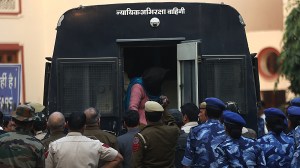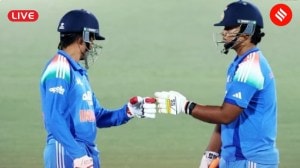Wheat imports: To avoid flak, Commerce changes norms
Having failed to get the controversial wheat imports out of its domain, the Commerce Ministry has changed the import...

Having failed to get the controversial wheat imports out of its domain, the Commerce Ministry has changed the import norms to avoid any criticism. After pitching for inclusion of two state trading enterprises (STE) to give competition to State Trading Corp, it decided last month to hand out equal import quota to all three STEs with the tender order decided through a lottery.
“The 10 lakh tonnes of wheat is to be equally divided between the three STEs — 3.3 lakh per STE. The order in which the tenders will be floated can be decided by a draw of lots by STC,” said the October 25 order.
The procedure, as done in import of edible oils, was adopted after Pranab Mukherjee — the chairman of empowered group of ministers (EGoM) on wheat imports — ignored the ministry’s plea to de-list Commerce as the nodal department for wheat imports.
The EGoM on September 7, handed over wheat imports to Commerce from Food Ministry after MMTC and PEC were added to the traders list on the request of Commerce Minister Kamal Nath. Nath had argued at the September 3 EGoM that inclusion of MMTC and PEC to compete with STC would fetch imports at better prices.
While acquiescing to Nath’s demand, the EGoM handed over wheat imports and its pricing to his department, taking it out of Food Ministry’s domain. Sensing a possible trouble, Nath tried to extricate his ministry informing Food Minister Sharad Pawar that Commerce did not have the domain knowledge for wheat imports and was not properly equipped to decide on the timing and the quantum of imports.
Pawar, already stung for cancelling a tender at $263 per tonne in March and later buying 5.11 lakh tonnes in June at $325 and 8 lakh tonnes at $390 in September, decided to stay away. His excuse: The EGoM’s decision must be honoured.
Nath then turned to Mukherjee to bail out his ministry. When this too did not work, the Commerce Department went against its ‘competition’ argument and fixed equal quota for each of the three traders. As a safeguard for any controversy on pricing, it has decided to broad base it by involving the Food Ministry and the Food Corporation of India.
“Each of the three STEs will individually decide the price in consultation with additional secretary and financial advisor of commerce and food & public distribution and a FCI representative,” said the order. It has also handed hedging and the timing of import arrivals at ports to STC to stay away from criticism of supply mismanagement.



- 01
- 02
- 03
- 04
- 05




























